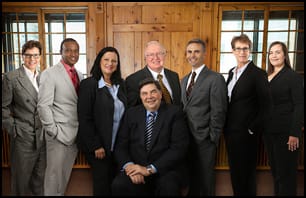Recent Supreme Court Decision Significantly Alters Employer’s Religious Accommodation Obligations
By Thomas E. Marshall
Lost in the midst of multiple decisions on free speech and student loans, was Groff v. Dejoy, 600 US ___, 143 S. Ct. 2279 (2023), a religious discrimination case. This decision upended 50 years of jurisprudence to the benefit of employees and to the detriment of employers.
Prior to Groff, an employer’s obligation to accommodate the religious belief of an employee depended on whether the accommodation presented more than a “de minimis” cost to the employer. If it was more than a de minimis cost, the employer had no obligation to accommodate. This understanding came from dicta in the case of Trans World Airlines, Inc. v. Hardison, 432 U.S. 63, 97 S. Ct. 2264, 53 L.Ed.2d 113 (1977). This case originated out of the Eighth Circuit. In Hardison, the Court commented that the minor cost of accommodating Mr. Hardison would be an “undue hardship.” However, the issue in the case dealt with seniority rights, not cost, and Mr. Hardison did not have the seniority for displacing others with his request. Nevertheless, this one line became the law on religious accommodation and even the EEOC recognized this standard in its regulations. See 29 CFR 1605.2(e)(1).
All that changed on June 29, 2023, when the Supreme Court released Groff, a unanimous decision. Groff, a postal worker, refused to work on Sundays due to his religious beliefs and, while other employees covered for him, Groff received progressive discipline which ultimately caused him to resign from his job. The postal service argued that having other workers cover Sundays affected morale and disrupted the workplace, and certainly more than the de minimis accommodation obligation required. The Court took the opportunity to clarify Hardison.
Justice Alito wrote the majority opinion. He reviewed the history of the de minimis comment and the issues it caused. The Court held “that ‘undue hardship’ is shown when a burden is substantial in the overall context of an employer’s business.” Groff, 143 S. Ct. at 2294. The Court left it to the lower courts to develop jurisprudence on the application of a substantial burden.
It is important to note that this decision applies to the federal law, Title VII, not the Minnesota Human Rights Act. While the Human Rights Act prohibits religious discrimination, it does not contain a requirement for an employer to accommodate an employee’s religious beliefs. See Tipcke v. Olmsted Medical Center, No. 0:2022cv02470 (D. Minn. 2023).
We expect the courts to look at the reasonable accommodation analysis in the Americans with Disabilities Act and other similar laws as they craft the new standards for religious accommodation. Employers will certainly be expected to carefully consider the accommodations requested by employees holding sincere religious beliefs in the performance of their duties.

